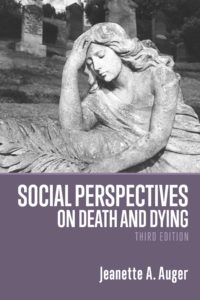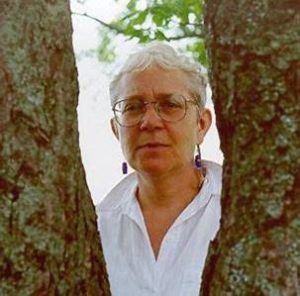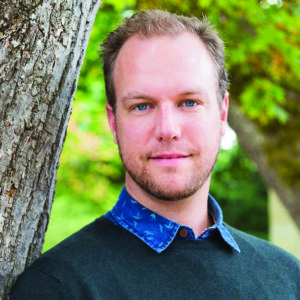Nonfiction # 90 Winter 2019 Reviews , Non-fiction ,
Thinking outside the edges
 Awakening My Heart: Essays, articles and interviews on the Buddhist Life, by Andrea Miller (Pottersfield Press)
Awakening My Heart: Essays, articles and interviews on the Buddhist Life, by Andrea Miller (Pottersfield Press)
Q: Would individuals who don’t practise Buddhism be interested in this book?
Andrea: Awakening My Heart will work for a readership that’s much wider than card-carrying Buddhists. First of all, the material was never intended to just be for Buddhists. The thing is that a large number of people who don’t identify as Buddhist nonetheless relate to the core teachings of Buddhism. Buddhism, at the heart of it, doesn’t require you to believe—or not believe—in something otherworldly. The core of Buddhism is simply timeless, universal observations about the nature of life—what makes us suffer and what could make us truly happy. Awakening My Heart is largely focused on that very accessible, very relatable core of Buddhism

Q: I was especially excited when I saw children’s singer Raffi was one of the individuals featured in your book as he was a childhood favourite of mine. Is there one particular individual featured in the book who made a lasting impression on you?
Andrea: In 2010, I was assigned to write a profile of the Vietnamese Zen master, Thich Nhat Hanh. I wasn’t wildly excited about doing this article, but in the process of doing the research, I became intrigued. Thay, as he’s affectionately called, is widely recognized as the creator of the modern Engaged Buddhist movement; that is, the movement to bring Buddhist teachings and practice to bear on activism. During the Vietnam War, Thay worked tirelessly for peace, and for his efforts, he was nominated for a Nobel Peace Prize by Martin Luther King Jr. Then later, after the war, Thay went on to help the so-called boat people who were fleeing Vietnam. I was also drawn to his creative side. He was a poet, novelist and calligrapher. In 2012, I went—for work—on a retreat with Thich Nhat Hanh, and it was so much more powerful than I ever could have predicted and, ultimately, it led me to start identifying as a Buddhist.
 Social Perspectives on Death and Dying, third edition, by Jeanette A. Auger, (Fernwood Publishing)
Social Perspectives on Death and Dying, third edition, by Jeanette A. Auger, (Fernwood Publishing)

Q: I’m always curious as to why authors select a certain topic to turn into a book. What (or who) inspired you to write this book?
Jeanette: I grew up in the East End of London, England, and most of my family members died in hospices, so I was always fascinated with death and dying, especially as I was born at the end of the second world war and death was such a part of my community. As an adult living in Canada, I continued my interest in the topics and while teaching at Acadia and being involved in the local hospice initiative, decided to offer university courses in death and dying, which were (and are, as I still teach online) very popular.
Q: There is the old adage, don’t judge a book by its cover. The topic of death is not always comfortable for some people to discuss and some try to avoid it all together. What would you say to those readers who may be uncomfortable with the subject of death and therefore be wary of reading the book?
Jeanette: Because we all die, as will everyone and everything we know and love, it is important to explore our thoughts and feelings about this subject as well as understand the academic, historical, social, political and cultural approaches to this complex topic.
 The Earthis Flat!: An Exposé of the Globularist Hoax, edited by Kay Burns and David Eso (ISER Books)
The Earthis Flat!: An Exposé of the Globularist Hoax, edited by Kay Burns and David Eso (ISER Books)

Q: What is a flat earth thinker?
(David): “Flat Earth thinker” is an alternate term for “Flat Earther,” which is usually a pejorative, and refers to someone with a blind faith in a particular shape of the planet as well as biblical literalism, conspiracy theories, anti-science, etc. “Flat Earth thinkers” are those who use a symbolic or metaphorical Flat Earth ideology to creatively critique dominant beliefs.
(Kay) : Flat earth thinking reflects an inquisitive mind. A Flat Earth thinker doesn’t simply choose to accept the first answer, even if it is the dominantly accepted one. A Flat Earth thinker chooses to explore and examine multiple viewpoints and can be quite happy with having an unanswered question.
Q: The book seems to be about far more than the shape of the earth. What would you say to those who simply read the title and are immediately turned off?
(Kay): That kind of defensiveness—passing judgement before becoming more fully informed—is too often apparent in all sorts of situations. I would simply be inclined to ask why they would make that assumption without looking further. This book does have much greater meaning than the playful implications, but it is through the sense of play that a greater awareness can occur. Those willing to read it as satire will understand its relevance in today’s world of misinformation and disinformation and the irony of perceiving flat earth thinking as limited.
(David): My advice would be to look again. This book is an antidote to our climate of polarized opinions. Ferrari’s philosophy is surrounded by humour—sometimes cutting, sometimes joyous, sometimes absurd. And I think we need books like this today, ones that refuse to remain in a particular box and defy the divide between seriousness and irreverence. Ironically, this book might be most useful for those who don’t want to read it. ■
Written By:



